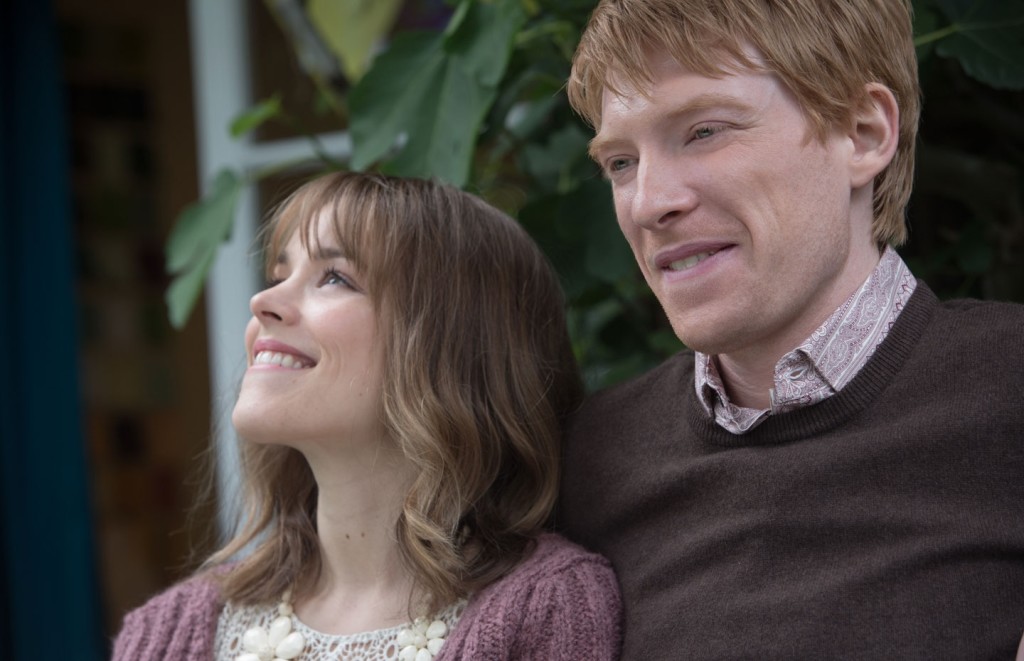There is something magical about a great film, one that pulls you to the edge of your seat, with a story and characters so magnificently crafted that they worm their way into your imagination even after the screening.
“About Time” is not one of those movies.
I’m not sure who first said it, but I’ve always loved the phrase “a triumph of mediocrity.” Never, in recent memory, have I seen a film more deserving of the lukewarm accolade than this one.
“About Time” promises to tell the story of a young man who discovers he can travel back in his own timeline to relive the days of his life. But it fails to do this. In fact, the film hardly tells a story at all.
We enter protagonist Tim Lake’s (Domhnall Gleeson) life when, aside from being a bit clumsy, everything seems to be going mildly okay for him. He may not be a huge ladies’ man, but even that rounds out his character.
We are also introduced briefly to his quirky family members throughout the film, such as his father (Bill Nighy), but we are never really given a chance to interact with these delightful people. Instead, director Richard Curtis decided to chain his yawning audience to the slender ankles of a 21-year-old ginger with about as much personality as a paperweight as he subtly manipulates the space-time continuum in hopes of convincing a young woman named Mary (Rachel McAdams) that he is worthwhile.
I went in expecting to dislike what I was about to see and my powers of precognition did not fail me. Sure, there were a meager handful of clever jokes, but the film didn’t grab me — and it’s almost like it wasn’t trying.
For one, the film sets forth a list of rules guiding the strange universe in which Tim exists and proceeds to blatantly break all of them. A few words of advice: it’s a bit difficult for an audience to suspend their disbelief when Curtis half-assed it. I wish I could have been a fly on the wall when they were filming some of those scenes. I want to know how the actors were able to get through them without breaking down and asking, “Wait, what the hell is going on right now?”
The main characters have already seemingly completed their personal growth at the start of the film, and there is hardly any character development in the 124-minute runtime.
Curtis apparently noticed, in the editing room, that what he had created with “About Time” was the cinematic equivalent of a toaster with a broken heating element. To fix it, he scrambled to bring Gleeson back in to do what must be one of the most shameless and ridiculous voiceover summations in film history for several minutes before the credits roll. It’s bad enough that we had to sit through a movie as exciting as a ball of clay, but to make us listen to that morally superior soliloquy at the end was hell. The audience has just seen your movie, Mr. Curtis. We may have been dumb enough to sit through the whole thing, but we are smart enough to know what you were trying to do and that you fell miserably short in that regard. I know you created “Mr. Bean,” and we all thank you tremendously for doing so, but that particular success does not give you the authority to be so condescending. That you have the audacity to ask us to feel some sort of connection with your work of “art” by explaining why the movie was so beautiful and the moral lessons we should take from it
is unimaginable.
I can’t imagine anyone walking out of this film feeling particularly enthusiastic or excited about the experience. I will say one thing, though: I did quite like the title of the film. There was nothing more satisfying than, as the words “The End” flashed upon the screen, loudly exclaiming “About time.”









